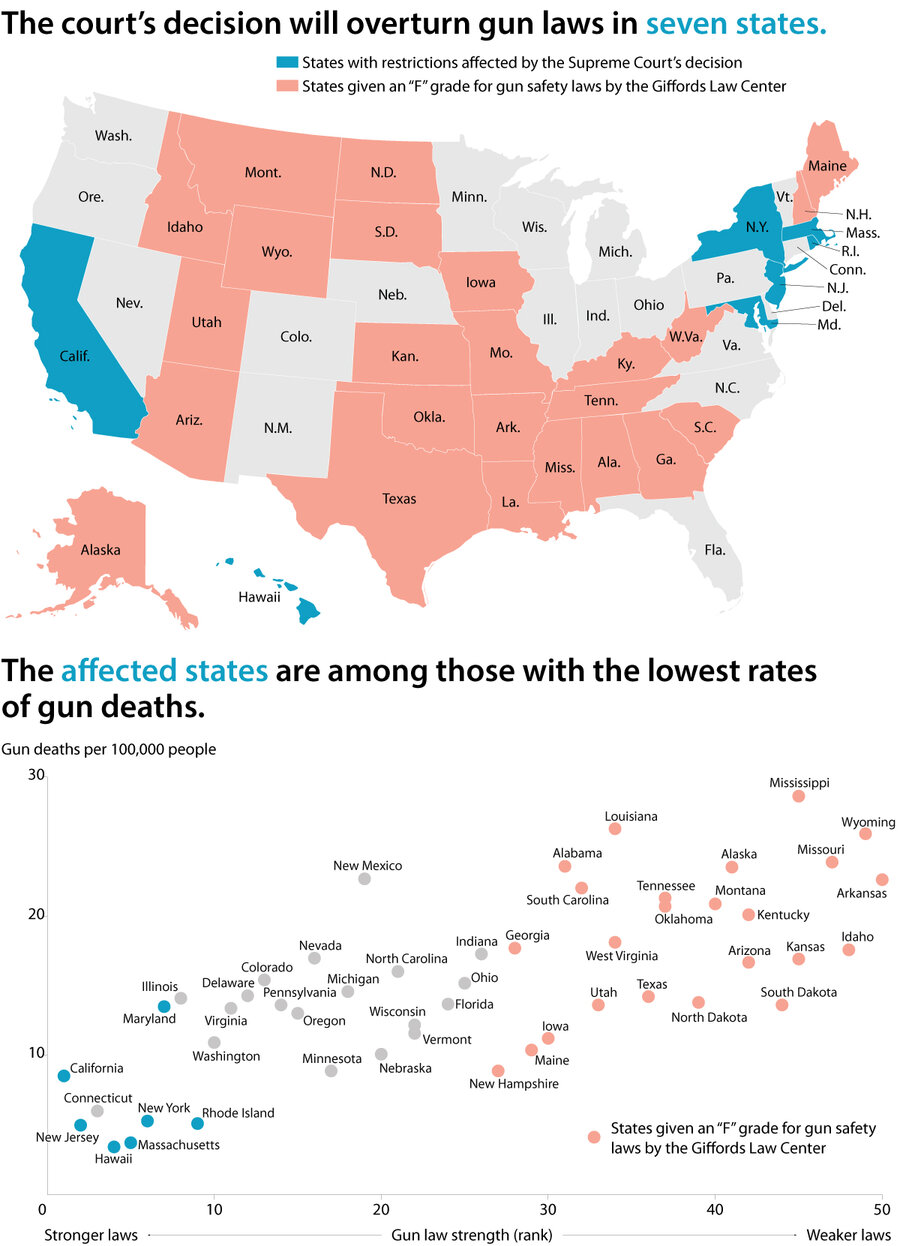The Supreme Court’s ruling Thursday underscores just how dramatically judicial interpretation of the Second Amendment has shifted in recent decades.
Monitor Daily Podcast
- Follow us:
- Apple Podcasts
- Spotify
- RSS Feed
- Download
 Mark Sappenfield
Mark Sappenfield
From start to finish, today’s issue of The Christian Science Monitor Daily has some very meaty things to chew on: the Supreme Court’s major ruling on gun laws, how Russians see their war in Ukraine, education’s role in democracy, and abortion. For many Americans, these issues are about more than policy. They speak to the course of the nation and personal well-being.
The tendency can therefore be to cast such issues in stark, almost apocalyptic terms. That’s understandable. These are difficult, visceral issues. But a recent article in Vox offers something more to consider. It looks at how societies talk about climate change and what effect that has on children. The article cites a 2021 study, which finds that more than half those polled between ages 16 and 25 said climate change had “doomed” humanity. The article states: “Some ‘climate anxiety’ is the product of telling kids – falsely – that they have no future.”
The author concludes: “I have yet to find a children’s book that frames the climate crisis … as a challenge, but one like the many that humanity has overcome, and one that our kids can overcome by learning about the world and inventing new solutions.”
That conclusion seems relevant to more than just children and climate change. What are the stories we are telling ourselves as adults – about abortion or gun laws? Our article on abortion today highlights someone who rejects stereotypes and urges collaboration across different viewpoints. Her perseverance and respect are some of our most powerful tools in addressing abortion – or any intractable issue. And they make for a very different kind of story.











